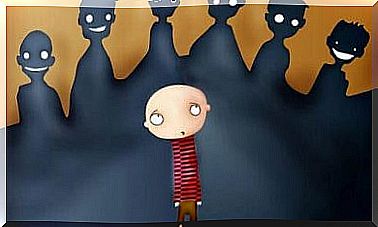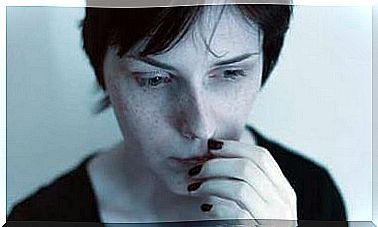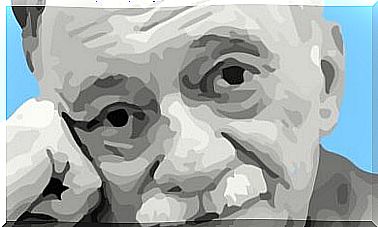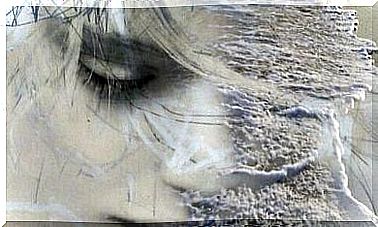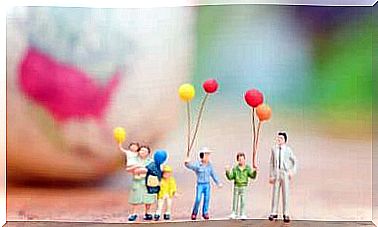7 Characteristics Of Existential Anxiety

“What is the meaning of all this that we are experiencing? Will all the efforts I’m making help me? Why do I feel so lonely and lost lately?” Existential anxiety is accompanied by a series of complex and profound questions that philosophers such as øren Kierkegaard raised in their day.
They define a set of feelings and discomforts about life in general terms that we don’t know how to deal with. This psychological reality is increasingly common. In periods of global crisis, human beings question their position in the world and its meaning.
It is a matter of discontent combined with a critical view of things in which there is also a certain feeling of anguish. Somehow, we are led to a period of reflection as well as internal conflict from which – and in the best case – we make new decisions and change some perspectives.
However, this is clearly not an easy experience to deal with.

What are the characteristics of existential anxiety?
that it is common, and even necessary, to allow ourselves to be caught up in existential anxiety from time to time. It is a way to make us aware that we are mortal and, thus, to trace new vital purposes.
The equation sounds easy, but the practice is certainly complicated. Because in states of anxiety, if there is anything difficult, it is to be able to think clearly and make decisions.
Thoughts become irrational, repetitive and harmful. Likewise, physical symptoms include tachycardia, muscle aches, headaches, sleep disturbances, panic attacks… So, although philosophy has taken this concept further, psychology takes a more realistic view when it takes the point of view into account. clinical.
The characteristics of existential anxiety are nourished by a human being’s state of temporary anguish. Research works, such as those carried out at the Vienna Institute of Logotherapy, for example, point to something important. Behind this condition is fear, anguish and a sense of threat. The person no longer feels secure and doubts the social structures that were important to him before.
If these perceptions and psychological states are not adequately addressed, there is a risk that they will lead to depression. It is therefore essential to know how this type of anxiety manifests itself.
1. Feeling of overexertion and uselessness
One of the characteristics of existential anxiety is physical and psychological exhaustion. The person thinks they are investing time and effort in things that are not worth it. She is at the limit of her strength: what is the use of suffering so much for this work? Where will all this fatigue and all the resources I invested take me? Will all this I’m doing help me?
2. Negative valence emotions, such as anguish, restlessness and regret
Something recurrent in these contexts of existential anguish is feeling trapped by a constant anguish. The person questions everything he has done and what surrounds him. Distrust of the present and the future, and this distrust makes the “ground” sway under your feet.
She regrets many things she has done and, in turn, maintains a constant state of unease. It’s a mixture of nervousness and a sense of persistent threat.
3. Loss of meaning in life
This kind of anxiety is associated with a loss of a sense of authenticity. Nothing is what was originally thought. The perception that society is fallible is reinforced.
This vision, this feeling is lived with anger and disappointment. The person even feels bad about himself for having placed his trust in these social structures.
4. The feeling of isolation present in existential anxiety
One of the characteristics of existential anxiety is the feeling that no one understands what we are going through. It’s as if the reality and noise of the world are on one side and the mind on the other.
Feelings of loneliness and isolation are common, a reality that hinders the desire for social interaction. Thus, a negative self-feeding circle is formed.
5. A mind that questions almost everything
The mind is a factory of crippling thoughts during states of anxiety. Thus, when going through periods of crisis and transition, human beings tend to question a good part of the things that surround them. The critical eye becomes voracious; misrepresents and questions everything.
Even your own beliefs and your faith are called into question. This gradually makes the feeling of distrust grow even more.

6. Sense of unreality or depersonalization
This is a very common phenomenon. Another characteristic of existential anxiety is the feeling of being separate from reality. It’s like being on top of a mountain watching the movements of a world you don’t quite understand. The person feels that he is not part of this scenario, that what he perceives there does not seem to be entirely authentic.
7. Panic Attacks, Another Feature of Existential Anxiety
The continual feeling that nothing makes sense, that everything is beyond one’s control, makes panic attacks appear sooner or later.
The anguish that accumulates day after day ends up manifesting itself in those disabling and surprising episodes that tend to reinforce even more the feeling of fear and insecurity.
To conclude, it is important to emphasize that these experiences are common in times of change, especially when we enter new phases of life.
In these circumstances, it is essential to be able to seek support. Coping skills can allow us to come out of this situation stronger, gaining resources to face the new phase more effectively.
